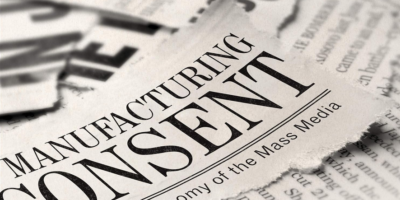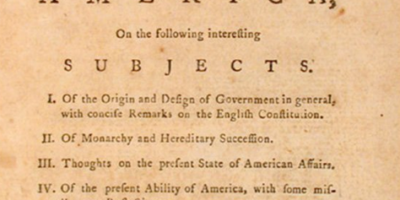U.S. history, U.S. governments and job creation
By Jack Stevenson
Presidential elections in the United States are affected by the economy. We are going to be hearing rival arguments about job creation and economic recovery. Can a government create jobs and engineer recovery from an economic recession? A brief glance at the American experience is revealing.
A little more than a century ago, the common conveyance was a horse drawn carriage. Suddenly, the horseless carriage created great excitement. By 1915, there were 450 companies in the United States trying to produce carriages that would eventually be known as automobiles. Few of those companies survived, but an era was born—and another one died. Harness makers, wagon and buggy producers, and those in the horseshoeing trade found that their jobs had been eliminated by a newfangled contraption that made a lot of noise, scared horses, and didn’t run very well. But for every job eliminated by the horseless carriage, several new jobs were created.
Henry Ford standardized parts. With that achievement he could produce automobiles on an assembly line, and the efficiency of the assembly line and standardized repair parts made automobiles affordable for ordinary Americans. Mass production of automobiles generated follow-on employment for people in glass, rubber, coal, steel, road building, oil exploration and refining, gasoline service stations, automobile sales and service dealerships, junkyards, towing, emergency medical service, insurance, chemicals, law, farm machinery, construction equipment, military equipment, trucking, machine tools, the travel and recreation industry, and the automobile facilitated suburban housing utilization and shopping mall development. The automobile was an economic engine. The jobs that were created generated tax revenue that made the United States Treasury the envy of the world. Automobiles were an exceptionally useful invention, and everybody wanted one.
Today, there is no job generator on the horizon that promises to be equivalent to the automobile. In fact, businesses have moved to eliminate employment. Automation and computerization are reducing the need for employees.
Depressions, stimulus, war and debt
When World War II began, the United States had been suffering from a severe economic depression for more than 10 years. Unemployment was still over 17 percent in 1939, a decade after the infamous stock market crash. During the depression, the Roosevelt Administration engaged in countercyclical deficit spending to stimulate the economy, but it did not generate economic recovery. Robert S. McElvaine, historian and author of The Great Depression, writes that “Without the military boom in response to the German war machine, Roosevelt’s presidency would probably have been remembered as compassionate and helpful but ineffective in solving the fundamental problems of the Depression.”
The war created a gargantuan demand for war materiel: ships, planes, trucks, tanks, artillery, and the thousands of other things that were required to equip and sustain millions of soldiers, sailors, and airmen. Unemployed citizens were recruited to work in the war production plants. The demand was so great that women were welcomed into the factories. During the course of the war, sixteen million Americans served in the armed forces. War production and military service solved the unemployment problem.
The United States government imposed taxes but also borrowed, massively, to fund the war. The massive debt was not a great burden because, after the war, the U.S. was the only industrial power still standing. The U.S. produced for the entire world and quickly became the world’s leading economy. Also, when the war was over, there was strong domestic demand for everything a growing population of young American families needed. A generous GI Bill provided an educated work force.
We cannot duplicate this employment process today, and surely no reasonable person would want to.
On June 19, 2010, the 1100 workers at the Evansville, Indiana, Whirlpool plant lost their $18 per hour jobs because the company closed the plant and outsourced the jobs to a foreign country. With the approval of the U.S. Government, American corporations have outsourced approximately six million jobs to foreign countries. When that happens, families are devastated. Businesses where those families spent money are diminished, tax revenue declines, and welfare requirements increase. Yet, our capitalist doctrine approves of these adjustments. Corporations exist to maximize profit; they do not exist to govern wisely. While we strive to increase employment, we simultaneously eliminate jobs.
British economist John Maynard Keynes advocated that, during an economic recession, a government should spend more than it collects in tax revenue to stimulate economic recovery and then impose taxes to recover the debt as soon as economic conditions improve. This theory has many adherents. However, we must ask if it is wise to incur a debt when a country already has a staggering debt. Since 1970, 42 years ago, the United States government collected more tax revenue than it spent in only four years, and it spent more than it received in tax revenue in each of the other 38 years. Consequently, our national debt is now more than 15 trillion dollars. We are currently spending almost 40 percent more each year than we collect in tax revenue, and we have not found an equitable way to curb that excess spending. So, currently, government spending (deficit spending) to stimulate the economy and trigger job growth is not a very practical solution.
Government’s role: trust
If a formula existed that a government could apply to engineer a recovery from a serious economic recession, every government on the planet would use it, and economic recessions would be weekend affairs. Obviously, that kind of economic formula doesn’t exist. But government does have a necessary role in our economic system. Foremost is creating trust.
We need to be able to trust our police and our judicial systems. We need confidence that the hundreds of government functions that serve us are reliable. Among those many services, none is more important than public education. In a complex technical society, education is vital. We need to know that we can change our government or government officials when necessary. Trustworthy and responsive governments provide a good foundation for economic activity. Federal, state, and local government payrolls provide an important cushion during an economic recession. Those paychecks just keep coming, and without the government paychecks, economic recessions would be much worse.
Economics professors Carmen Reinhart and Kenneth Rogoff surveyed the history of economic crises over several hundred years. They indicate in their book, This Time is Different, that it typically requires five years for a country to regain full employment following a severe recession. If that trend holds, employment in the United States will normalize by 2013. But, “this time,” it may not happen that quickly. The people who lost their jobs to outsourcing are not going to be recalled. Mortgage housing issues are not resolved. The national debt and our unwillingness to produce tax revenues equal to annual government expenditures limit the government’s capability to solve problems.
Regardless of your political party preferences, you would be wise to view political promises of government driven economic prosperity with some skepticism.




Leave a Reply